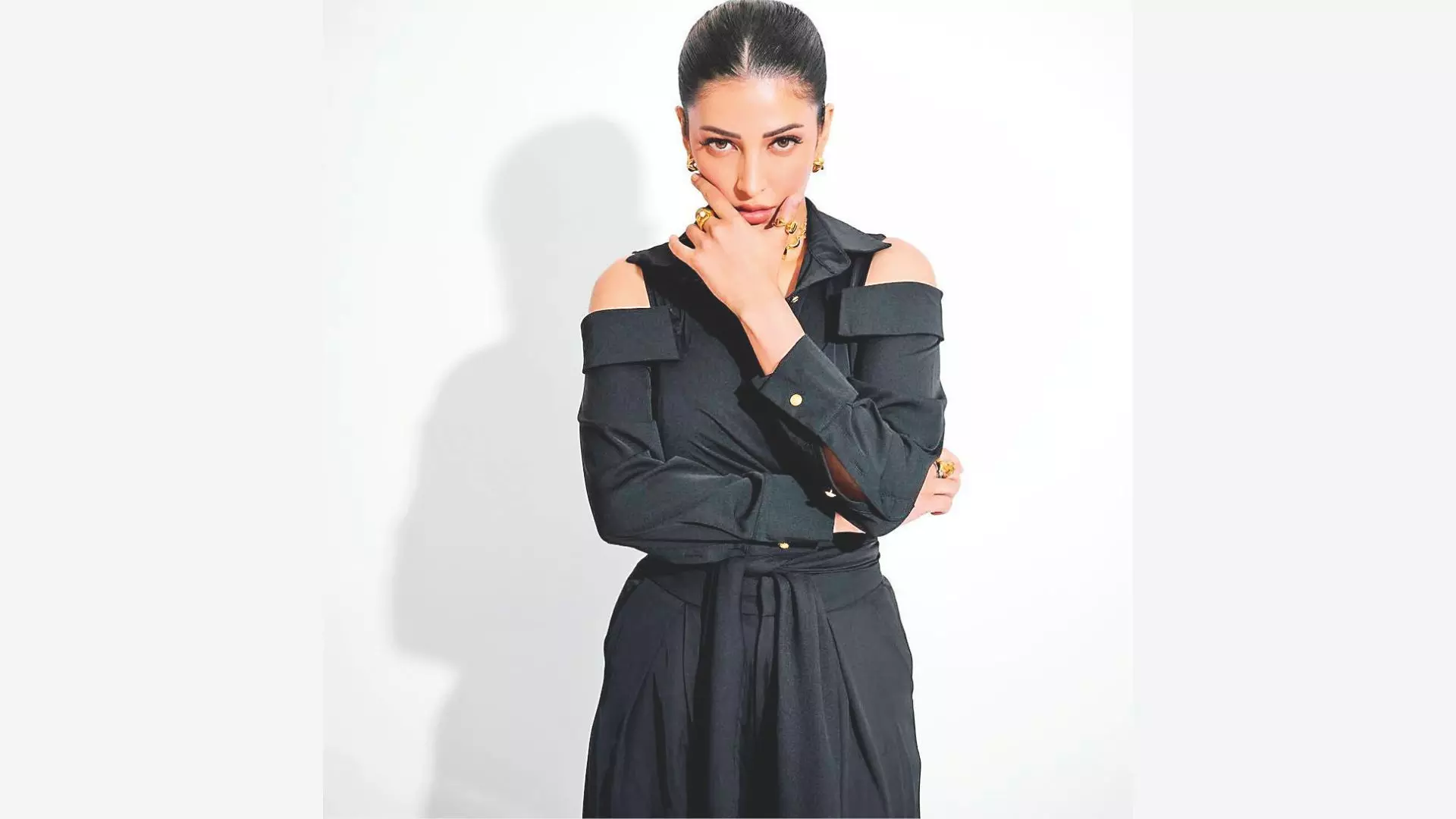It’s okay to not be okay

Shruti Haasan is a powerhouse of talent — actor, singer and advocate for things that make the world a better place. She opens up about her mental health, animal welfare and environmental issues.
You’ve discussed your anxieties and mental health issues. Advice for those with similar issues?
I spoke out about my issues with anxiety because it’s something I really battled with and it’s something I used to feel ashamed about. But as I addressed the issues I had through talk therapy, anxiety was de-stigmatised and I wished I had that kind of support when I first went through it, so I could have understood it better.
It’s okay to not be okay and not use substitutes that society gives you to numb things. Also, a lot of people feel, why not just talk to your family? As much as your family and friends love you and always will, the truth is that a mental health professional is fully equipped to help you get over the speed bumps that you face in life in a professional manner.
How do you prioritise self-care?
At first, I felt extremely guilty, saying, ‘Oh, will people think I am not hardworking?’ or ‘Will people think I am moody?’ or whatever. But now, over time, I really take time for myself to do the simple things that make me feel good. I take time to get my workouts in, because the release of dopamine, serotonin and all the happy hormones when you work out really help balance me.
Professionally, we have to interact with a varied bunch of people. But when it comes to my personal time, I always spend it with people who mean well for me, who are good for me.
How do you think we can create more compassion for animals?
What people don’t understand is, from bees to marine life, we are all connected. It’s not enough to look at climate crisis or cruelty towards animals as something that’s very far removed. So, instead of talking about just compassion to animals, I would say it is about compassion and understanding for the world we live in.
What message would you like to convey for World environmental health day, animal welfare and mental health?
They may seem like separate things, but they’re all connected. It’s really an awareness of not being I, me, myself, but looking at the collective and working in synergy with the world around us.
What sparked your interest in environmental conservation or animal welfare?
When I was younger, and moved to America, for the first time I saw a bunch of people working towards mitigating global warming. I was around 19 or 20 years old, and had no idea what that meant. Seeing them separate their waste into wet and dry components and talk about recycling and biodegradable materials got me interested in the subject. We learn a lot from people who are different from us and have different interests.

